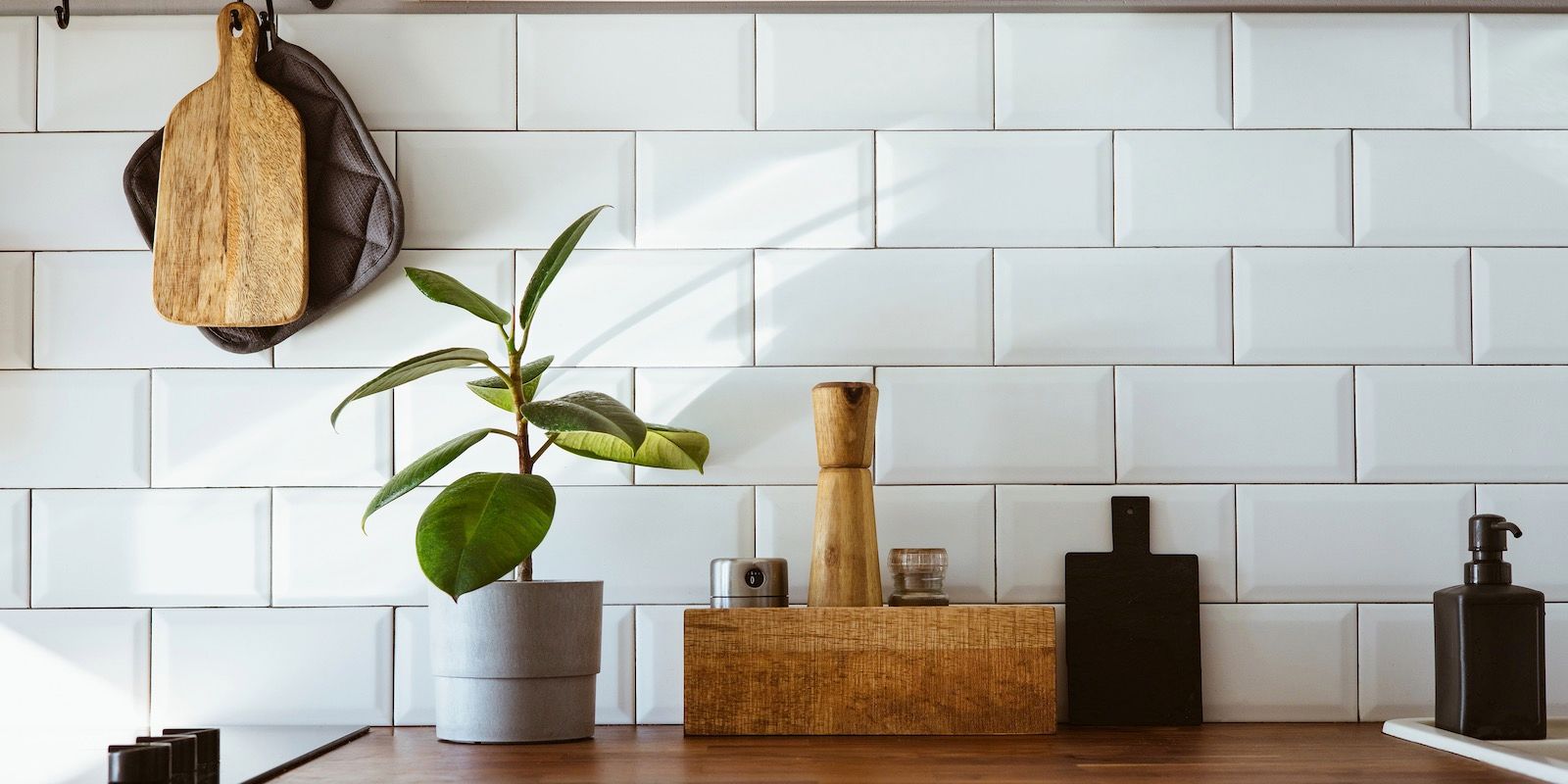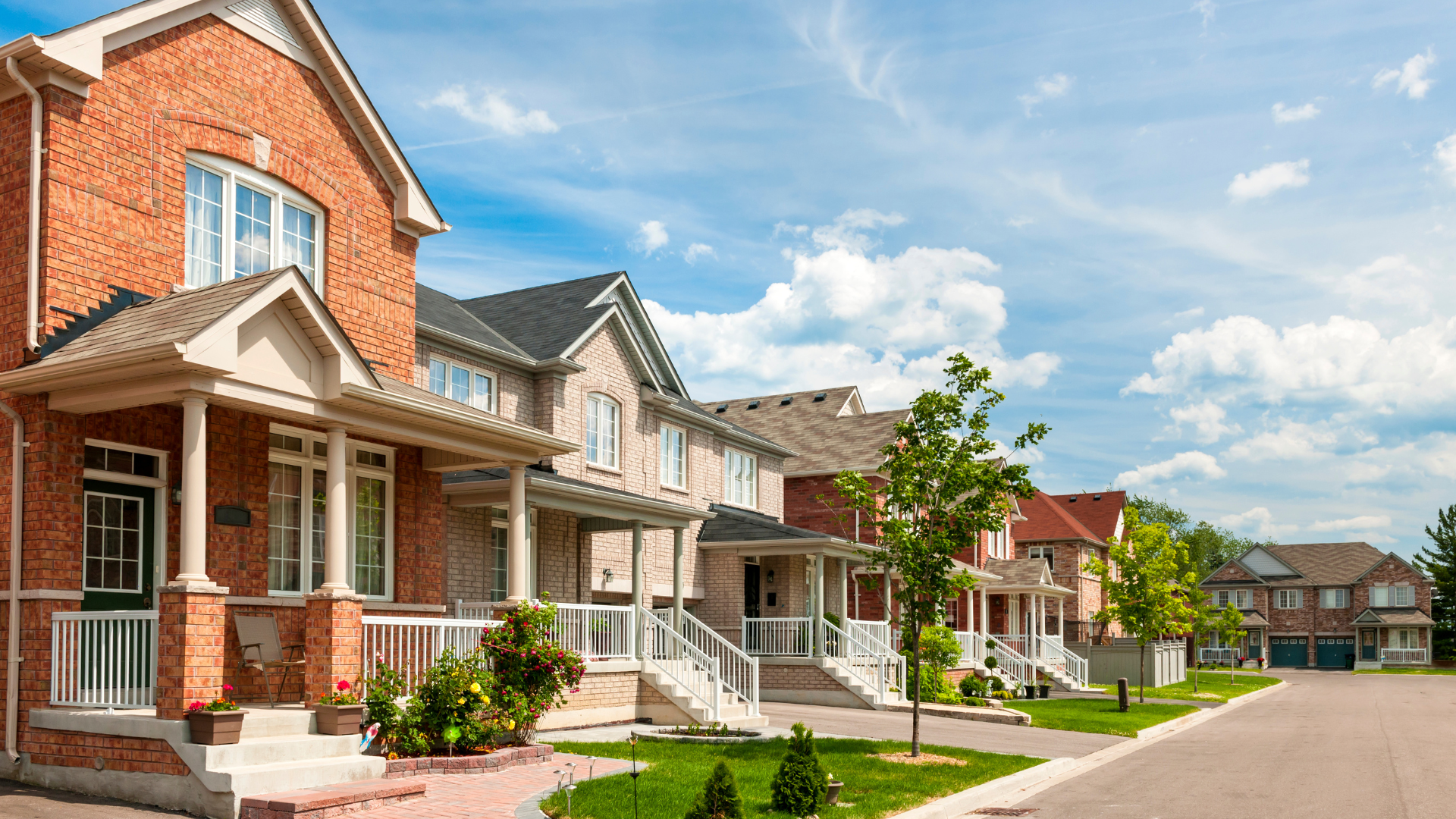Articles to keep you learning

Porting your mortgage is when you transfer the remainder of your current mortgage term, outstanding principal balance, and interest rate to a new property if you’re selling your existing home and buying a new one. Now, despite what some big banks would lead you to believe, porting your mortgage is not an easy process. It’s not a magic process that guarantees you will qualify to purchase a new property using the mortgage you had on a previous property. In addition to re-qualifying for the mortgage you already have, the lender will also assess the property you’re looking to purchase. Many moving parts come into play. You’re more likely to have significant setbacks throughout the process than you are to execute a flawless port. Here are some of the reasons: You may not qualify for the mortgage Let’s say you’re moving to a new city to take a new job. If you’re relying on porting your mortgage to buy a new property, you’ll have to substantiate your new income. If you’re on probation or changed professions, there’s a chance the lender will decline your application. Porting a mortgage is a lot like qualifying for a new mortgage, just with more conditions. The property you are buying has to be approved So let’s say that your income isn’t an issue and that you qualify for the mortgage. The subject property you want to purchase has to be approved as well. Just because the lender accepted your last property as collateral for the mortgage doesn’t mean the lender will accept the new property. The lender will require an appraisal and scrutinize the condition of the property you’re looking to buy. Property values are rarely the same Chances are, if you’re selling a property and buying a new one, there’ll be some price difference. When looking to port a mortgage, if the new property’s value is higher than your previous property, requiring a higher mortgage amount, you’ll most likely have to take a blended rate on the new money, which could increase your payment. If the property value is considerably less, you might incur a penalty to reduce the total mortgage amount. You still need a downpayment Porting a mortgage isn’t just a simple case of swapping one property for another while keeping the same mortgage. You’re still required to come up with a downpayment on the new property. You’ll most likely have to pay a penalty Most lenders will charge the total discharge penalty when you sell your property and take it from the sale proceeds. The penalty is then refunded when you execute the port and purchase the new property. So if you are relying on the proceeds of sale to come up with your downpayment, you might have to make other arrangements. Timelines rarely work out When assessing the housing market, It’s usually a buyer’s market or a seller’s market, not both at the same time. So although you may be able to sell your property overnight, you might not be able to find a suitable property to buy. Alternatively, you may be able to find many suitable properties to purchase while your house sits on the market with no showings. And, chances are, when you end up selling your property and find a new property to buy, the closing dates rarely match up perfectly. Different lenders have different port periods Understanding that different lenders have different port periods is where the fine print in the mortgage documents comes into play. Did you know that depending on the lender, the time you have to port your mortgage can range from one day to six months? So if it’s one day, your lawyer will have to close both the sale of your property and the purchase of your new property on the same day, or the port won’t work. Or, with a more extended port period, you run the risk of selling your house with the intention of porting the mortgage, only to not be able to find a suitable property to buy. So while the idea of porting your mortgage can seem like a good idea, and it might even make sense if you have a low rate that you want to carry over to a property of similar value, it’s always a good idea to get professional mortgage advice and look at all your options. While porting your mortgage is a nice feature to have because it provides you with options, please understand that it is not a guarantee that you’ll be able to swap out properties and keep making the same payments. There’s a lot to know. If you’re looking to sell your existing property and buy a new one, please connect anytime. It would be a pleasure to walk you through the process and help you consider all your options, including a port if that makes the most sense!

If you’re looking to purchase a property, although you might not think it matters too much, the source of your downpayment means a great deal to the lender. Let’s discuss the lender requirements, what your downpayment tells the lender about your financial situation, a how downpayment helps establish the mortgage loan to value. Anti-money laundering Lenders care about your downpayment source because, legally, they have to. To prevent money laundering, lenders have to document the source of the downpayment on every home purchase. Acceptable forms of downpayment are money from your resources, borrowed funds through an insured program called the FlexDown, or money you receive as a gift from an immediate family member. To prove the funds are from your resources and not laundered money from the proceeds of crime, you’ll be required to provide bank statements showing the money has been in your account for at least 90 days or that you’ve accumulated the funds through payroll deposits or other acceptable means. Now, if you’re borrowing all or part of your downpayment, you’ll need to include the costs of carrying the payments on the borrowed downpayment in your debt service ratios. If you’re the recipient of a gift from a direct family member, you’ll need to provide a signed gift letter indicating that the funds are a true gift and have no schedule for repayment. From there, you’ll need to show the money deposit into your account. Financial suitability Lenders care about the source of the downpayment because it is an indicator that you are financially able to purchase the property. Showing the lender that your downpayment is coming from your resources is the best. This demonstrates that you have positive cash flow and that you’re able to save money and manage your finances in a way that indicates you’ll most likely make your mortgage payments on time. If your downpayment is borrowed or from a gift, there’s a chance that they’ll want to scrutinize the rest of your application more closely. The bigger your downpayment, the better, well, as far as the lender is concerned. The way they see it, there is a direct correlation between how much money you have as equity to the likelihood you will or won’t default on their mortgage. Essentially, the more equity you have, the less likely you will walk away from the mortgage, which lessens their risk. Downpayment establishes the loan to value (LTV) Thirdly, your downpayment establishes the loan to value ratio. The loan to value ratio or LTV is the percentage of the property’s value compared to the mortgage amount. In Canada, a lender cannot lend more than 95% of a property’s value. So, if you’re buying a home for $400k, the lender can lend $380k, and you’re responsible for coming up with 5%, $ 20k in this situation. But you might be asking yourself, how does the source of the downpayment impact LTV? Great question, and to answer this, we have to look at how to establish property value. Simply put, something is worth what someone is willing to pay for it and what someone is willing to sell it for. Of course, within reason, having no external factors coming into play. When dealing with real estate, an appraisal of the property will include comparisons of what other people have agreed to pay for similar properties in the past. You’ll often hear of situations where buyers and sellers try to inflate the sale price to help finalize the transaction artificially. Any scenario where the buyer isn’t coming up with all of the money for the downpayment, independent of the seller, impacts the LTV. All details of a real estate transaction purchase and sale have to be disclosed to the lender. If there’s any money transferring behind the scenes, this impacts the LTV, and the lender won’t proceed with financing. Non-disclosure to the lender is mortgage fraud. So there you have it; hopefully, this provides context to why lenders ask for documents to prove the source of your downpayment. If you’d like to talk about mortgage financing, please connect anytime; it would be a pleasure to work with you.

If you’re going through or considering a divorce or separation, you might not be aware that there are mortgage products designed to allow you to refinance your property and buy out your ex-spouse. If you’re like most people, your property is your most significant asset and is where most of your equity is tied up. If this is the case, it’s possible to structure a new mortgage that allows you to purchase the property from your ex-spouse for up to 95% of the property’s value. Alternatively, if your ex-spouse wants to keep the property, they can buy you out using the same program. It’s called the spousal buyout program. Here are some of the common questions people have about the program. Is a finalized separation agreement required? Yes. To qualify, you’ll need to provide the lender with a copy of the signed separation agreement, which clearly outlines asset allocation. Can the net proceeds be used for home renovations or pay off loans? No. The net proceeds can only buy out the other owner’s share of equity and/or pay off joint debt as explicitly agreed upon in the finalized separation agreement. What is the maximum amount that you can access through the program? The maximum equity you can withdraw is the amount agreed upon in the separation agreement to buy out the other owner’s share of the property and/or retire joint debts (if any), not exceeding 95% loan to value. What is the maximum permitted loan to value? The maximum loan to value is the lesser of 95% or the remaining mortgage + the equity required to buy out other owner and/or pay off joint debt (which, in some cases, can total < 95% LTV. The property must be the primary owner-occupied residence. Do all parties have to be on title? Yes. All parties to the transaction have to be current registered owners on title. Your solicitor will be required to confirm this with a title search. Do the parties have to be a married or common-law couple? No. Not only will the spousal buyout program support married and common-law couples who are divorcing or separating, but it’s also designed for friends or siblings who need an exit from a mortgage. The lender can consider this on an exception basis with insurer approval. In this case, as there won’t be a separation agreement, a standard clause will need to be included in the purchase contract to outline the buyout. Is a full appraisal required? Yes. When considering this type of mortgage, a physical appraisal of the property is required as part of the necessary documents to finalize the transaction. While this is a good start to answering some of the questions you might have about getting a mortgage to help you through a marital breakdown, it’s certainly not comprehensive. When you work with an independent mortgage professional, not only do you get a choice between lenders and considerably more mortgage options, but you get the unbiased mortgage advice to ensure you understand all your options and get the right mortgage for you. Please connect anytime; it would be a pleasure to discuss your needs directly and provide you with options to help you secure the best mortgage financing available. Also, please be assured that all communication will be held in the strictest of confidence.

One of the benefits of working with an independent mortgage professional is having lots of great financing options! Rather than dealing with a single lender with one set of products, independent mortgage professionals work with multiple lenders who offer a wide selection of mortgage financing options that provide more choice. Increased choice in mortgage products is beneficial when your situation isn’t “normal,” or you don’t quite fit the profile of a standard buyer. Purchasing a new construction home through an assignment contract would be a great example of this. Purchasing a new construction home through an assignment contract can be tricky as not every lender wants the added perceived risk of dealing with this type of transaction. Most of these lenders won’t come out and say it; instead, they add a significant list of qualifying conditions to make the process harder. The good news is, there are lenders available exclusively through the broker channel that have favourable policies for assignment purchases. Here are some of the highlights: All standard purchase qualifications apply, including applicable income verification, established credit, and required downpayment Assignments can be at the original purchase price or current market value Minimum 620 beacon score with no previous bankruptcies or consumer proposals The full downpayment must come from the purchaser and not include any incentives from the seller. As far as documentation goes, the lender will want to see the original purchase agreement signed by all parties, the MLS listing, the assignment agreement signed by the builder, the original purchaser, and the new buyer. The lender will also want to see the side agreement between the original purchaser and the new buyer, including the amended purchase price. The lender will want to substantiate the value through a full appraisal. Now, as every situation is different, this list of conditions is in no way exhaustive but meant to show that assigning a new construction purchase contract is doable while highlighting some of the terms necessary to secure financing. If you’re looking to purchase new construction through an assignment contract, or if you’d like to discuss purchasing a home through traditional means, please connect anytime! It would be a pleasure to outline the mortgage products on the market that won’t limit your financing options!

Refinancing your mortgage can be a smart financial move, but how do you know if it’s the right time? Whether you’re looking to lower your monthly payments, access home equity, or consolidate debt, refinancing can offer valuable benefits. Here are five key signs that it might be the right time to refinance your mortgage in Canada. 1. Interest Rates Have Dropped One of the most common reasons Canadians refinance is to secure a lower interest rate. Even a small decrease in your mortgage rate can lead to significant savings over time. If rates have dropped since you took out your mortgage, refinancing could help you reduce your monthly payments and save thousands in interest. ✅ Tip: Check with your mortgage broker to compare your current rate with today’s market rates. 2. Your Financial Situation Has Improved If your credit score has increased or your income has stabilized since you first got your mortgage, you might qualify for better loan terms. Lenders offer lower rates and better conditions to borrowers with strong financial profiles. ✅ Tip: If you’ve paid off debts, improved your credit score, or increased your savings, refinancing could work in your favour. 3. You Want to Consolidate High-Interest Debt Carrying high-interest debt from credit cards, personal loans, or lines of credit? Refinancing can help consolidate those debts into your mortgage at a much lower interest rate. This can make monthly payments more manageable and reduce the overall cost of borrowing. ✅ Tip: Make sure the savings from refinancing outweigh any prepayment penalties or fees. 4. You Need to Free Up Cash for a Major Expense Many Canadians refinance to access their home’s equity for renovations, education costs, or major life expenses. With home values rising in many areas, a refinance could help you tap into that value while still keeping manageable payments. ✅ Tip: Consider a home equity line of credit (HELOC) if you need flexible access to funds. 5. Your Mortgage Term is Ending, and You Want Better Terms If your mortgage is up for renewal, it’s the perfect time to explore refinancing options. Instead of simply accepting your lender’s renewal offer, compare rates and terms to see if you can get a better deal elsewhere. ✅ Tip: A mortgage broker can help you shop around and negotiate better terms on your behalf. Is Refinancing Right for You? Refinancing isn’t always the best move—there can be penalties for breaking your current mortgage, and not all savings are worth the switch. However, if you relate to any of the five signs above, it’s worth discussing your options with a mortgage professional. Thinking about refinancing? Let’s chat and find the best option for you!

You’ve most likely heard that there are two certainties in life; death and taxes. Well, as it relates to your mortgage, the single certainty is that you will pay back what you borrow, plus interest. With that said, the frequency of how often you make payments to the lender is somewhat up to you! The following looks at the different types of payment frequencies and how they impact your mortgage. Here are the six payment frequency types Monthly payments – 12 payments per year Semi-Monthly payments – 24 payments per year Bi-weekly payments – 26 payments per year Weekly payments – 52 payments per year Accelerated bi-weekly payments – 26 payments per year Accelerated weekly payments – 52 payments per year Options one through four are straightforward and designed to match your payment frequency with your employer. So if you get paid monthly, it makes sense to arrange your mortgage payments to come out a few days after payday. If you get paid every second Friday, it might make sense to have your mortgage payments match your payday. However, options five and six have that word accelerated before the payment frequency. Accelerated bi-weekly and accelerated weekly payments accelerate how fast you pay down your mortgage. Choosing the accelerated option allows you to lower your overall cost of borrowing on autopilot. Here’s how it works. With the accelerated bi-weekly payment frequency, you make 26 payments in the year. Instead of dividing the total annual payment by 26 payments, you divide the total yearly payment by 24 payments as if you set the payments as semi-monthly. Then you make 26 payments on the bi-weekly frequency at the higher amount. So let’s use a $1000 payment as the example: Monthly payments formula: $1000/1 with 12 payments per year. A payment of $1000 is made once per month for a total of $12,000 paid per year. Semi-monthly formula: $1000/2 with 24 payments per year. A payment of $500 is paid twice per month for a total of $12,000 paid per year. Bi-weekly formula: $1000 x 12 / 26 with 26 payments per year. A payment of $461.54 is made every second week for a total of $12,000 paid per year. Accelerated bi-weekly formula: $1000/2 with 26 payments per year. A payment of $500 is made every second week for a total of $13,000 paid per year. You see, by making the accelerated bi-weekly payments, it’s like you end up making two extra payments each year. By making a higher payment amount, you reduce your mortgage principal, which saves interest on the entire life of your mortgage. The payments for accelerated weekly payments work the same way. It’s just that you’d be making 52 payments a year instead of 26. By choosing an accelerated option for your payment frequency, you lower the overall cost of borrowing by making small extra payments as part of your regular payment schedule. Now, exactly how much you’ll save over the life of your mortgage is hard to nail down. Calculations are hard to do because of the many variables; mortgages come with different amortization periods and terms with varying interest rates along the way. However, an accelerated bi-weekly payment schedule could reduce your amortization by up to three years if maintained throughout the life of your mortgage. If you’d like to look at some of the numbers as they relate to you and your mortgage, please don’t hesitate to connect anytime; it would be a pleasure to work with you.

Navigating Mortgage Rates in an Uncertain Market With Canada’s economy facing trade tensions, inflation concerns, and a potential slowdown, mortgage rates are in flux. Borrowers must weigh the risks and rewards of fixed vs. variable rates to make the best decision for their financial future. What’s Driving Mortgage Rate Changes? Several key factors are shaping the mortgage landscape: Trade Uncertainty – New tariffs between the U.S. and Canada could push inflation higher, impacting bond yields and fixed mortgage rates. Inflation Pressures – If inflation stays above the Bank of Canada’s 2% target, rate cuts may be delayed, keeping borrowing costs higher. Recession Concerns – If economic growth slows, the BoC could cut rates, making variable-rate mortgages more attractive. Fixed vs. Variable: Which One is Right for You? 🔒 Fixed-Rate Mortgages: ✅ Predictable payments for peace of mind ✅ Protection from future rate hikes ❌ Typically higher initial rates ❌ Costly penalties if you break your term early 📊 Variable-Rate Mortgages: ✅ Lower starting rates with potential for savings ✅ Easier to break or refinance if needed ❌ Payments can fluctuate with rate changes ❌ Higher risk if inflation pushes rates upward What’s the Best Move Right Now? ✔ Go Fixed if you want stability and protection from rising rates. ✔ Go Variable if you believe rates will drop and you can handle some risk. ✔ Consider a Hybrid Mortgage to get the best of both worlds. Stay Flexible & Informed Mortgage rates are unpredictable, and the best choice today may change in a few months. Working with a mortgage professional can help you navigate these shifts and secure the best deal for your financial future. Need expert guidance? Reach out today to discuss your options!

It’s a commonly held belief that if you’ve made your mortgage payments on time throughout the entirety of your mortgage term, that the lender is somehow obligated to renew your mortgage. The truth is, a lender is never under any obligation to renew your mortgage. When you sign a mortgage contract, the lender draws it up for a defined time, so when that term comes to an end, the lender has every right to call the loan. Now, granted, most lenders are happy to renew your mortgage, but several factors could come into play to prevent this from happening, including the following: You’ve missed mortgage payments over the term. The lender becomes aware that you’ve recently claimed bankruptcy. The lender becomes aware that you’re going through a separation or divorce. The lender becomes aware that you lost your job. Someone on the initial mortgage contract has passed away. The lender no longer likes the economic climate and/or geographic location of your property. The lender is no longer licensed to lend money in Canada. Again, while most lenders are happy to renew your mortgage at the end of the term, you need to understand that they are not under any obligation to do so. So how do you protect yourself? Well, the first plan of action is to get out in front of things. At least 120 days before your mortgage term expires, you should be speaking with an independent mortgage professional to discuss all of your options. By giving yourself this lead time and seeking professional advice, you put yourself in the best position to proactively look at all your options and decide what’s best for you. When assessing your options at the time of renewal, even if the lender offers you a mortgage renewal, staying with your current lender is just one of the options you have. Just because your current lender was the best option when you got your mortgage doesn’t mean they are still the best option this time around. The goal is to assess all your options and choose the one that lowers your overall cost of borrowing. It’s never a good idea to sign a mortgage renewal without looking at all your options. Also, dealing with an independent mortgage professional instead of directly with the lender ensures you have someone working for you, on your team, instead of seeking guidance from someone with the lender’s best interest in mind. So if you have a mortgage that’s up for renewal, whether you’re being offered a renewal or not, the best plan of action is to protect yourself by working with an independent mortgage professional. Please connect anytime; it would be a pleasure to work with you!

When looking to qualify for a mortgage, typically, a lender will want to review four areas of your mortgage application: income, credit, downpayment/equity and the property itself. Assuming you have a great job, excellent credit, and sufficient money in the bank to qualify for a mortgage, if the property you’re looking to purchase isn’t in good condition, if you don't have a plan, you might get some pushback from the lender. The property matters to the lender because they hold it as collateral if you default on your mortgage. As such, you can expect that a lender will make every effort to ensure that any property they finance is in good repair. Because in the rare case that you happen to default on your mortgage, they want to know that if they have to repossess, they can sell the property quickly and recoup their money. So when assessing the property as part of any mortgage transaction, an appraisal is always required to establish value. If your mortgage requires default mortgage insurance through CMHC, Sagen (formerly Genworth), or Canada Guaranty, they’ll likely use an automated system to appraise the property where the assessment happens online. A physical appraisal is required for conventional mortgage applications, which means an appraiser will assess the property on-site. So why is this important to know? Well, because even if you have a great job, excellent credit, and money in the bank, you shouldn’t assume that you’ll be guaranteed mortgage financing. A preapproval can only take you so far. Once the mortgage process has started, the lender will always assess the property you’re looking to purchase. Understanding this ahead of time prevents misunderstandings and will bring clarity to the mortgage process. Practically applied, if you’re attempting to buy a property in a hot housing market and you go in with an offer without a condition of financing, once the appraisal is complete, if the lender isn’t satisfied with the state or value of the property, you could lose your deposit. Now, what happens if you’d like to purchase a property that isn’t in the best condition? Being proactive includes knowing that there is a purchase plus improvements program that can allow you to buy a property and include some of the cost of the renovations in the mortgage. It’s not as simple as just increasing the mortgage amount and then getting the work done, there’s a process to follow, but it’s very doable. So if you have any questions about financing your next property or potentially using a purchase plus improvements to buy a property that needs a little work, please connect anytime. It would be a pleasure to walk you through the process.

